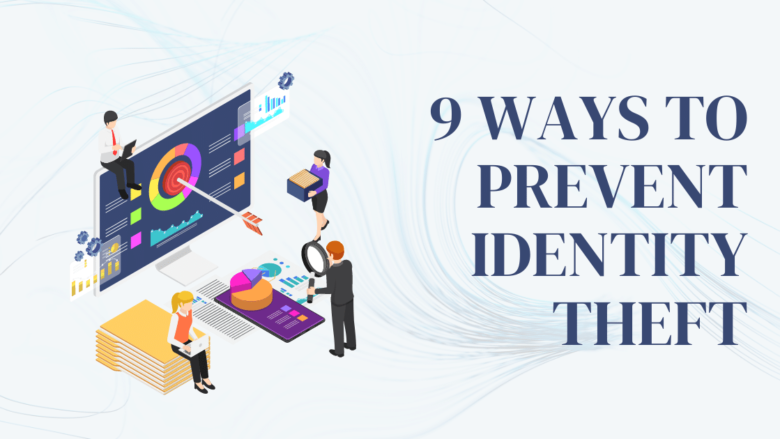Having your identity stolen is one of the worst things that could happen to you. Cybercriminals may use your information for malicious activity, from opening new credit cards and taking loans in your name to even using your information while engaging in serious crimes. Guarding your privacy is crucial, especially in the digital age. In this article, we’ll show you 9 simple ways to prevent identity theft and secure your online identity.
Use unique passwords
You are only as strong as your weakest password. Use strong and unique passwords for all your online accounts so that if one of them is involved in a data breach, you do not run the risk of compromising all your information. Use a password manager to generate and store strong passwords for all your accounts, especially for online banking and government services.
Be mindful about your social media presence
While posting updates on social networks is perfectly okay, be aware of what you post. Hackers and phishers might bait users into posting sensitive information like their full birthday, their maiden name, their first pet’s name, and other answers to common security questions. Keep this information private and share it sparingly on social media, especially if you have a public account. Change the passwords of your social media accounts regularly.
Protect important numbers
From your credit card number to your TFN, do not share important numbers with anybody over the phone. Simple things like posting a photo of your brunch with your credit card in sight can give hackers access to your card number. Give out important information only to trustable authorities, preferably in person.
Ensure SSL security in websites
Before entering sensitive information on any website, make sure that your information is encrypted. Ensure this by keeping an eye out for the ‘lock’ symbol on the URL bar and the ‘HTTPS’ prefix. This shows that the website has SSL security, which promises that your data is encrypted.
Online phishing scammers may pretend to be a legitimate website and ask for sensitive information. An SSL certificate is proof that the website is secure and authentic.
Secure physical documents
Collect your mail regularly and don’t let it pile up – it is easy for scammers to skim through a pile of mail and note down sensitive information like your credit card statement. If you plan on taking a vacation, ask a trusted friend or neighbour to pick your mail up for you or arrange to have it sent to a collection box.
While outside, do not leave receipts and credit card bills behind. Dispose of them responsibly and keep sensitive information safe from prying eyes. When it’s time to throw your credit card bill away, shred it before you throw it in the trash.
Beware of phishing scams
Scammers might pretend to be legitimate businesses like Amazon, Microsoft, Apple, and even government agencies. They might want to verify your identity by asking you to read out sensitive information. In this case, hang up immediately and do not respond to any verification request. In case you need to contact a business or government agency, find their contact information on their website and reach out to them yourself – do not entertain unsolicited calls.
Use firewall and virus protection software
It is recommended to use antivirus and firewall software while browsing the internet. Accidentally clicking on one unsafe link is all it takes for malware to make its way to your computer. A managed services provider can help you figure out the best firewall subscription based on your usage.
Check bank statements regularly
Check all your financial statements and credit card bills regularly to make sure that there are no suspicious charges. If you notice anything out of the ordinary, freeze your credit card immediately and contact your bank. Once you’ve verified your bills, shred them before throwing them away.
Use digital wallets
Contactless payments and digital wallets are encrypted, which makes them safer to use compared to physical cards. Swiping machines installed in card readers can copy your card information, giving hackers the chance to steal your money and identity.
Closing thoughts
Although it might be worrying to think about your identity getting stolen, the good news is that with basic diligence, you can greatly reduce the chances of it happening. If you notice any suspicious activity, let the authorities know immediately and block your credit card. Identity theft may be scary, but a good service provider can help you protect your information.










FIND US ON SOCIALS